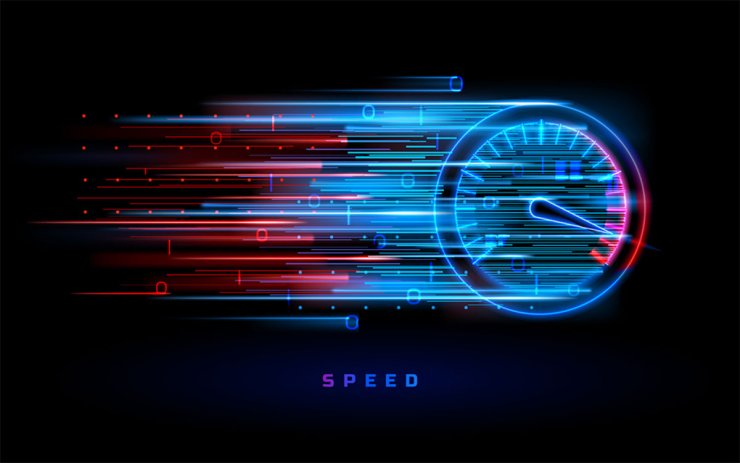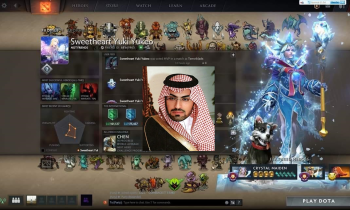As gaming continues to evolve and expand in popularity, the demand for a smooth and immersive gaming experience has become essential. Central to this experience is the speed of the internet connection, which directly influences responsiveness, lag reduction, and overall gameplay quality. However, determining the optimal speed for gaming is a complex matter influenced by several crucial factors.
In this blog post, you'll discover the importance of speed in gaming and examine the factors that influence gaming speed as we recommend internet speeds for various online gaming categories. Whether you're a casual gamer or a competitive player, understanding the role of speed is necessary for achieving a satisfying gaming journey. So without further ado, let's get started!

The Importance of Speed in Gaming
Speed plays a crucial role in gaming, influencing numerous key factors such as quickness, fluidity, and seamless progression. Gamers depend on fast internet connections to minimize latency, reducing lag and delays. With a fast and stable connection, they can transmit data packets quickly between the gaming server and the player's device, resulting in a smooth and immersive gameplay experience.
Factors that Affect Gaming Speed
To ensure a seamless and enjoyable gaming experience, several factors come into play that can impact gaming speed. These factors can determine how smooth and responsive your gameplay is, which influences your ability to react quickly and make precise moves that will lead you to victory. Let's explore the four key factors that can affect gaming speed:
Internet Connection
Having a reliable internet connection from reputable providers like HughesNet Internet is crucial for online gaming. A fast and stable connection with low latency is essential to minimize the delay between your actions and their appearance on the screen. This ensures a seamless and interactive gaming experience, enhancing your gameplay and overall satisfaction.
Server Location
The proximity between your gaming device and the game server can impact speed and latency. When the game server is located far away, it can lead to increased ping times and slower response rates. Choosing game servers that are closer to your geographical location can help mitigate these issues, resulting in faster and more responsive gameplay.
Network Latency (Ping)
Latency is the time delay between executing actions in a game and the resulting responses on the screen. In fast-paced games, low latency is crucial to minimize delays, enabling a more responsive gaming encounter. It ensures that your actions are reflected on the screen quickly, allowing for smoother gameplay and better synchronization between your inputs and the game's output.
Hardware Performance
The performance and specifications of your gaming device, such as your computer or console, can affect gaming speed. A powerful processor, ample RAM, and a capable graphics card are essential for improved gameplay performance. These components enable faster processing, efficient multitasking, and enhanced visuals, resulting in a more immersive and enjoyable gaming experience.
What Is the Recommended Mbps for Various Types of Online Gaming?
The necessary Mbps (megabits per second) for online gaming can differ based on the specific genre or category of the game being played. Here's a breakdown of the recommended internet speeds for different types of online gaming:
Casual Gaming
Casual games with low graphical demands and minimal online interaction usually require a minimum speed of 3-5 Mbps. This speed is typically sufficient for puzzle games, arcade-style games, and basic browser-based games. These types of games prioritize simplicity and can be enjoyed with a stable internet connection, even at lower speeds.
Multiplayer and Co-op Games
For online multiplayer games that involve real-time player interaction, we advise aiming for speeds of 10-20 Mbps to guarantee a seamless gaming experience without any lags or delays. This recommendation applies to popular multiplayer titles such as Valorant, Rainbow Six Siege, or Battlefield.
Competitive Gaming
Competitive gaming demands a stronger internet connection. To maintain a competitive edge, we recommend a speed of 20-50 Mbps. This enables quick reaction times, minimal delay, and a smooth gaming experience, which is essential for popular multiplayer games like Fortnite, Overwatch, or Apex Legends.
Streaming and VR Gaming
If you plan to stream your gameplay or venture into virtual reality gaming, higher internet speeds are necessary. You should opt for speeds of 50 Mbps or higher to handle the additional data requirements for streaming high-quality video or supporting VR headset connectivity.
The Bottom Line
Determining the ideal speed for gaming is a subjective matter influenced by various factors. While a higher internet speed can enhance online gaming experiences, it is not the sole factor of gameplay quality. Factors such as server location, network latency, and hardware performance must be considered as well.
Gamers should also take into account their gaming preferences, game requirements, and budget when selecting an internet plan. But of course, finding the right balance between speed, reliability, and affordability is key to guaranteeing an enjoyable gaming experience without compromising other aspects of daily internet usage.










Comments